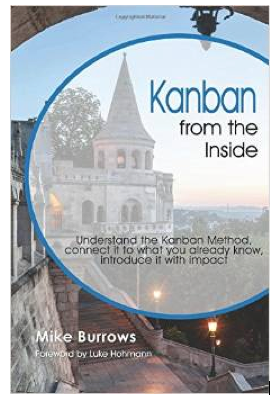The ninth in a roughly weekly series of short excerpts from my book, Kanban from the Inside. We’ve reached the penultimate chapter of Part I (Kanban through its values) and the last of the nine values.
Our ninth and final value is the third of our three leadership disciplines. What if all change could be conducted with understanding, agreement, and respect?
Respect underpins Kanban’s third Foundational Principle:
FP3: Initially, respect current processes, roles, responsibilities, and job titles.
It is sometimes suggested that this is redundant. Why would the humane, start with what you do now method need to state this principle explicitly?
I can think of at least three important reasons for its inclusion:
- It contains a pragmatic piece of change management advice: Don’t start your initiative by looking at roles.
- It points to an underlying philosophy: Find ways around obstacles to change.
- No other principle or practice expresses “respect for people” quite so directly.
Don’t Start with Roles
Changing the emphasis a little, let’s summarize some earlier advice:
- Start with what you do, looking at how what you do meets (and fails to meet) the needs of people inside and outside the system.
- Organize work; let people self-organize around it, allowing the system to change as a result.
A premature focus on roles would fatally undermine this process. If they need to be defined formally at all, roles can be aligned to process once it has been established—in context—that the process is sufficiently fit for purpose. Meanwhile, we’ll be making it very much easier for people to find that alignment for themselves. Why force the issue?
The Humane, Start with What You Do Now Method
Depicting Kanban as “the humane, start with what you do now method” highlights what I believe are two of the Kanban Method’s most differentiating features. They’re more differentiating than even the sticky notes and WIP limits, and that’s saying something!
Kanban is humane, not just because it has noble ideals, not just because it leads to better conditions for people, but because it is designed to be implemented in a way that is consistently respectful. Noble aims don’t justify unsafe organizational transformations. The goal of better conditions in the longer run doesn’t excuse riding roughshod over people in the interim. To my knowledge, few methods can claim Kanban’s internal integrity in its approach to implementation.
Also, there is something uniquely respectful in start with what you do now. It respects the journeys of all the people—past and present—who have brought the organization to where it is now. For all the good and the bad, it respects context, it celebrates survival, and it makes it easier to assume—however naively optimistic an assumption this might be—that people mostly did their best. I like that.
